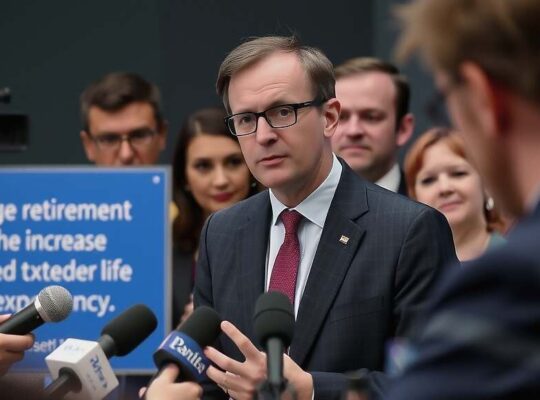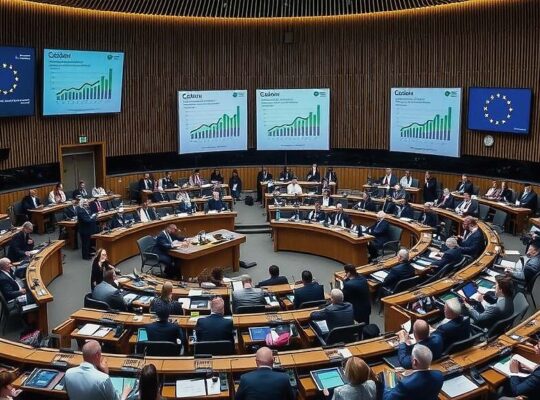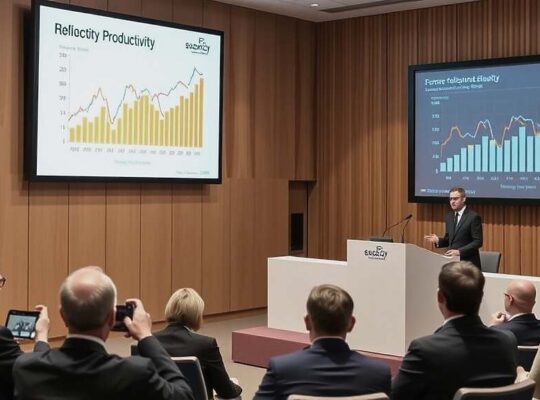The sluggish economic performance of Germany is prompting calls for a significant overhaul of labor laws, spearheaded by renowned economist Veronika Grimm. In an interview with Funke-Mediengruppe, Grimm argued that Germany’s stringent worker protection laws are actively stifling economic dynamism, preventing skilled labor from transitioning to more productive enterprises. This rigidity, she contends, is particularly detrimental during a period of profound structural change and discourages entrepreneurial endeavors.
Grimm proposes a shift inspired by the Danish model, advocating for reduced employment protection, alongside bolstering unemployment benefits and improving job placement services. “Such a system allows the economy to adapt more readily to new challenges” she explained, emphasizing that increased growth opportunities ultimately benefit workers. She explicitly calls for deregulation as the key to unlocking Germany’s stagnant growth. This includes a critical reassessment and potential dismantling of laws deemed excessive or ineffective, specifically citing cumbersome supply chain regulations and burdensome climate and energy reporting requirements.
Beyond worker protection, Grimm’s proposals take a strikingly unconventional turn, drawing parallels with the aggressive deregulation agenda currently underway in Argentina under President Milei. While acknowledging Germany’s comparatively stable economic situation, she urges policymakers to study the approach of Argentine deregulation minister, Pablo Sturzenegger, as a potential blueprint. “We lack such preparations in Germany” she stated, underlining the urgency of adopting a similarly proactive strategy.
The economist’s call for reform isn’s without potential controversy. Her suggestion to emulate Argentina’s approach has drawn skepticism and political debate, given the vastly different economic contexts and the complexities of adopting foreign policy models. The recent expert council assessment predicting a mere 0.2% economic growth this year and 0.9% in 2026, coupled with Grimm’s own dissenting votes within the council’s report, has further intensified the discussion regarding the perceived rigidity of German economic policy. Grimm’s remarks highlight a growing sentiment within some circles that an overhaul of Germany’s regulatory landscape is crucial to maintaining its competitive edge, particularly in rapidly evolving technological fields where current data protection and AI restrictions are perceived as hindering innovation. The ensuing debate is likely to shape the direction of economic policy in the months to come.












